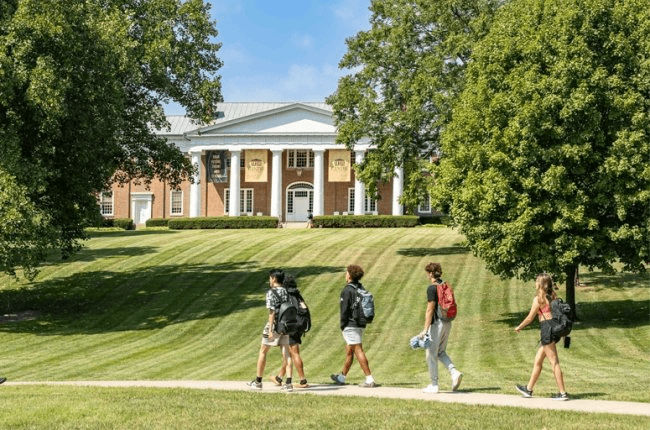by Elena Rodrigues
Student Answers
I had the privilege of interviewing a student who has not only experienced study abroad once, but three times! This student spent a CentreTerm trip in Lake Tahoe, a summer term trip in Italy, and a semester-long trip in the fall in Strasbourg, France. Here are their answers to commonly asked study abroad questions!
Q: How would you compare Centre-term and summer-term experiences abroad with your semester-long trip?
“As expected, this trip was a little bit more than intimidating at first. There were the usual worries about staying in touch with close friends and family back home, becoming homesick after such a long stay, and missing an entire semester of traditional school here at Centre. Although the nervousness still lingered at the three week mark, it is easier to stay in touch and connect with people from back home than you might expect! Homesickness only struck hard around Christmas time near the end of this fall semester trip, but overall the experience was great!”
Q: Is there a certain time frame (fall semester, spring semester, CentreTerm, or summer term) that you would suggest going on if you are feeling nervous?
“One important aspect to keep in mind when selecting study abroad courses is flight coordination! When attending CentreTerm or fall semester courses, students are coming off a break, so they have to coordinate fights with professors. As long as there is strong communication though, professors are typically ready and willing to help, and often provide a flight log. If forced to choose one, I highly recommend summer courses! Not only do summer courses alleviate the stress of fitting a study abroad into your academic schedule, but they also provide you with extra credit!”
Q: How would you describe the language barrier?
“Although this issue may be scary, the language barrier was actually much less prominent than one could expect. The professors plan most of the schedule, so there isn’t usually a lot of struggle when it comes to coordinating plans. However, the language barrier does play a role when going out to eat at restaurants and when talking to tour guides. At restaurants menus are not translated into English, so it is helpful to take a picture and use Google Translate.
There is an added bonus in knowing the language of the country you are visiting, but there is also beauty in struggling! When visiting France, my friends and I didn’t originally know the language. When we would visit cafes, we would point to what we wanted, and once we became regulars the employees began to remember our orders. This even helped us to start learning the language, and by the end we could begin to order ourselves!”
Q: How do you think your experience studying abroad is different from a normal vacation or tourist experience?
“There is a huge difference between the traveler and the tourist mindset. In a tourist mindset, you go and take pictures whenever you visit without understanding the history or significance of where you are. However, Centre courses provide you with the traveler mindset. Professors facilitate meaningful conversations after each visit, making you think deeper about your experience. Although course work can be intimidating, it really is a compliment to the trip. Not only does it give you the chance to better understand where you are, but it also gives you the opportunity to talk about and analyze your experience with your peers!”
Q: What is one thing you would absolutely never leave behind when going abroad?
- Tide Pods
- Earplugs
Adam-Chen Dedman
Adam-Chen Dedman is the Executive Director in the Office of Global Citizenship. His main job is working with institutional partnerships where we have study abroad programs. He also works with faculty members on budgeting and making plans for future strips. Here is an inside look on study abroad, and some advice from an expert!
Q: Why do you think global citizenship and study abroad is so important?
“When studying abroad or away, you are experiencing such a concentrated period of time in a new environment. This time constraint encourages students to make new discoveries everyday. In a new environment, wherever it may be, you encounter people who see the world in a different light, who have different ideas about life, politics, and society. In an increasingly globalizing world like this, there is always an opportunity to experience difference. By experiencing this difference, we become more effective and empathetic, in school, the workplace, and also as people.”
Q: Should students do their own research about the location they are going to?
“Absolutely! It is important not only to research the specific location, but also how that location relates to your goals. Take a look at the location of course, but also the specific courses, institutions, and how these courses and institutions will relate to your goals at Centre.”
Q: Do you have any advice for people who are feeling nervous about studying abroad?
“The best advice is to really think about why you are nervous. Students can be nervous for a number of reasons: being away from home, being on a plane, missing friends, but it is important to understand this before leaving. For example, if you are nervous about being completely independent, look into our programs which involve faculty members. Overall, just make sure that you have a stable support system that you can stay in contact with while abroad.”
Q: How do you prepare for culture shock?
“Cultivate a mindset that is comfortable with ambiguity. Drop any preconceived notions about what the experience should be, and learn that not knowing what’s going on is ok. But it is also smart to have a plan. If something goes wrong, know who you are going to contact. Know who you can contact when things go right and you just need a support system!”
